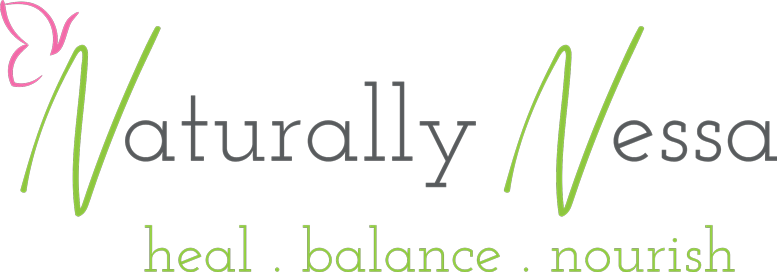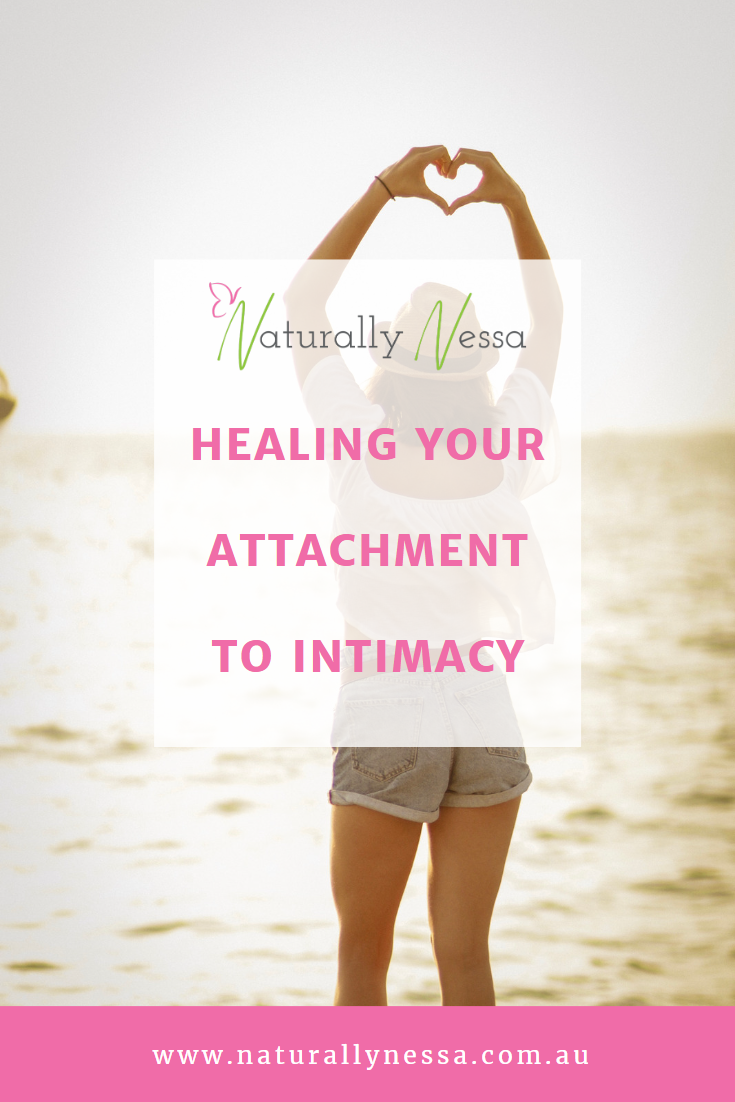Healing Your Attachment To Intimacy
If there’s one thing I know, it’s feeling like you have no intimacy issues when truth be told, your heart is locked up tighter than a vault to true intimacy. It’s not until you truly peel back the layers of your past pain that the walls start to melt away and come down.
Believe me, I can honestly say that I believed I was completely open hearted and ready for intimacy until, truth be told, I wasn’t. Yes, being in the centre of romance is lovely and very welcoming, but it can feel a little strange if you’re not used to it.
It may not be until the deep level of emotional intimacy begins to reveal itself that you realise there is still work to be done.
Now if you’re anything like me, you have everything completely under control. You’re Miss Independent and can get the job done on your own. Unfortunately, though, life is all about co-creation. You may have learnt the hard way that people let you down, and now you don't put a lot of faith in anyone to keep you from being let down or disappointed.
On the other hand, you may be aware that you have a wall up around your heart and you don’t want to allow anyone to get too close. If this sounds like you, the path towards helping you heal this attachment wound is all about asking for help, being vulnerable, softening, and connecting.
Your practice is: Ask for Help.
I know this sounds simple, but let me go into more detail.
Asking your partner to take over paying a bill, asking your work colleague to cover a call for you, asking your kids to do another chore, or asking your in-laws to babysit so you can take a yoga class (or a nap, no judgement) may challenge you.
Do any of these things make you cringe just a little bit?
Maybe you don't even remember the last time you delegated or asked for help?
This used to be me, but with practice, this can all change.
That gut reaction of hesitancy or even stress when thinking of asking for help is linked to the many times your cries for help when you were very young, weren't responded to properly.
I don’t believe in blaming our parents though, they did the best they could. After all, they were raised in a time when emotions weren’t even discussed.
Some of our parents were; suffering from trauma themselves, emotionally unavailable, struggling with addiction, stressed, dealing with poverty, etc. and they did the best they could with the resources they had.
BEING OPEN TO VULNERABILITY
The key to getting the connection and intimacy you truly desire lies in vulnerability and communication. And you cannot be vulnerable when you are in superwoman mode.
Allow yourself to soften, reach out and ask for help even with one small thing. Notice how it feels to have your request heard and responded to. Really feel how it feels to be helped. This simple process will start healing your inner child who wasn't helped or responded to back when you needed it.
Try asking for help with things even if you don’t really need the help and allow yourself to process how you feel in your body when you're being helped.
Recently I have found myself waiting for help rather than doing it all myself. This seems a strange concept to me, yet one that I know is helping to rewire my brain and allow for a closer emotional relationship.
So even if you know you can do it, maybe try waiting for some help. It may be exactly what your partner needs to help them re-align their attachment style.
And being open with your feelings in a healthy way can lead to open and honest communication. It can lead to more self-disclosing versus blaming and can foster a more intimate and trusting relationship.
Discuss with your partner how you would like to connect over emotions and what you may need or would prefer from each other.
Ask open-ended questions to explore and understand your partner’s feelings better.
Paraphrase back what you heard and empathise with the underlying feelings.
Example; “When I see things from your perspective, it makes perfect sense why you’d feel that way.”
For the partner who dismisses emotion, it’s helpful to understand that when you seek to understand your partner’s feelings, you’ll have a better roadmap to take action that will help your partner feel better.
When both partners can talk about feelings without being critical, it allows the emotionally dismissive partner to tolerate those emotions better and grow their ability to be comfortable with those emotions.
For the partner who has emotional storms, start to practice mindfulness and ask yourself: “What is the secret wish this emotion is trying to tell me?”
By being mindful, you can start to see a path out of the storm. A simple way to do this is to say to your partner (and yourself), “I notice I am feeling [insert emotion].”
Having awareness of your emotions in any situation, especially when asking for help will release any stress your body may be holding, which will ultimately allow the re-wiring of your brain within the patterns you are holding on to.
UNDERSTAND YOUR ATTACHMENT STYLE TO KNOW WHAT YOU NEED IN RELATIONSHIPS
So what is attachment? Simply put. how your parents or caretakers took care of you determines your attachment style, or how you show up in your adult relationships.
Below are 4 main attachment styles in the area of romantic relationships that I thought we’d focus on.
Understanding your attachment style is as important as any other personality type program, whether it be Myers-Briggs, your astrological sign or numerology. Attachment styles operate on a subconscious level on a daily basis.
THE GOAL: SECURE ATTACHMENT
Secure attachment means you had a pretty good parenting experience growing up. In adulthood, you view the world as safe, responsive to you, see abundance, expect success, trust yourself, and are engaged with your intuition. You pick healthy partners and bounce back after breakups. About 20% of adults are secure, but the rest of us can become secure with help.
FEAR OF ABANDONMENT: ANXIOUS
Having parents/caretakers inconsistently there for you growing up can lead to an anxious attachment style. In adulthood you may come off as clingy. needy, or often worry about your relationships. You are emphatic, sensitive and nurturing. Separation from your partner is uncomfortable and you may think of yourself as codependent. I recognise myself in this one, even though I am definitely independent and not an anxious person. It just shows how much our past still has a hold of us.
BETTER OFF ALONE: AVOIDANT
If your needs weren’t often met growing up, you probably learnt to take care of yourself. you may have avoidant attachment. You're ambitious and accomplished. You are Miss Independent. Although you want love, once it gets too close, you find a way out. The paradox is you want Love, but then find your loneliness familiar.
A MIXTURE OF FUN + DRAMA: DISORGANISED
If your parents loved you but also caused you harm (psychological or emotional) you may have disorganised attachment. You may see yourself in all three of the previous styles. You're a risk taker. live life to the fullest, feel all the feelings, and sometimes stir up chaos or drama when things get a little boring in relationships. This is your subconscious trying to recreate the crazy world you were raised in.
WHAT YOU NEED IN RELATIONSHIPS BASED ON YOUR ATTACHMENT STYLE
Did you find yourself in any or all of the attachment styles? You can be a mix of a few attachment styles and may see dominant ones in different relationships depending on your partner's attachment style. With support. you can start taking steps in your relationships today to become a more securely attached person.
Here are a few things you may need, based on your attachment style:
SECURE ATTACHMENT can feel blessed in knowing you may be a step ahead of the rest of us, but this may also leave you feeling the pressure to help others. Let me just say, release yourself from this pressure and share your love with the world unconditionally.
ANXIOUS ATTACHMENT need to feel secure. comforted. reassured, and valued in their relationships. Something you can do is to start focusing more on skills such as grounding techniques to calm yourself, since you may rely on your partner to do this. Watch for "clingy" impulses as this behaviour may drive away potential partners, which is the opposite of what you want. These techniques will help diffuse tension and anxiety.
AVOIDANT ATTACHMENT have the opposite problem. They don't put enough care and attention into relationships, which leads to them not getting the love they really want deep down. Start by cultivating your platonic relationships. Growing intimacy in your friendships will help you feel you can trust and rely on others. This will shift your beliefs so you can experience more connection with your romantic partner.
DISORGANISED ATTACHMENT style takes more time to heal, because of the chaos your nervous system is used to due to the trauma and neglect you associate with someone who loves you. Be committed to YOU. You may have a history of, or are in, a current relationship that feels a bit abusive, unfulfilling, lacking respect, or intimacy/connection.
Getting support from a self-help group, therapist, healer or life coach will be helpful in your personal growth and don't let ANYONE else stop you from your healing process.
Find one safe person you can trust to start opening up to. Process and heal those childhood wounds so you can have the healthy relationships you deserve.
I would be delighted to help you go further on this journey. If you are interested please reach out for a SOUL CHAT
PIN FOR LATER:


